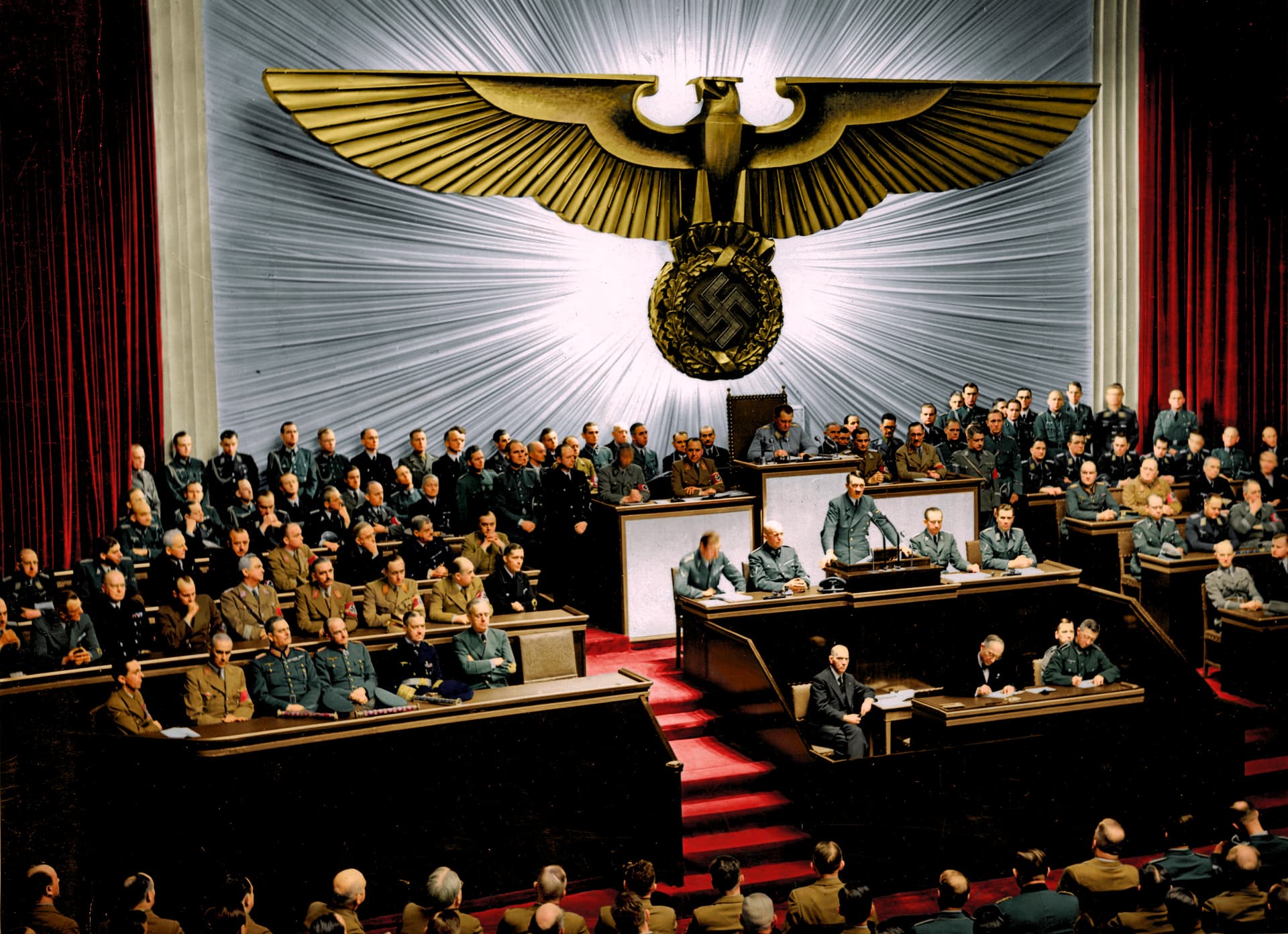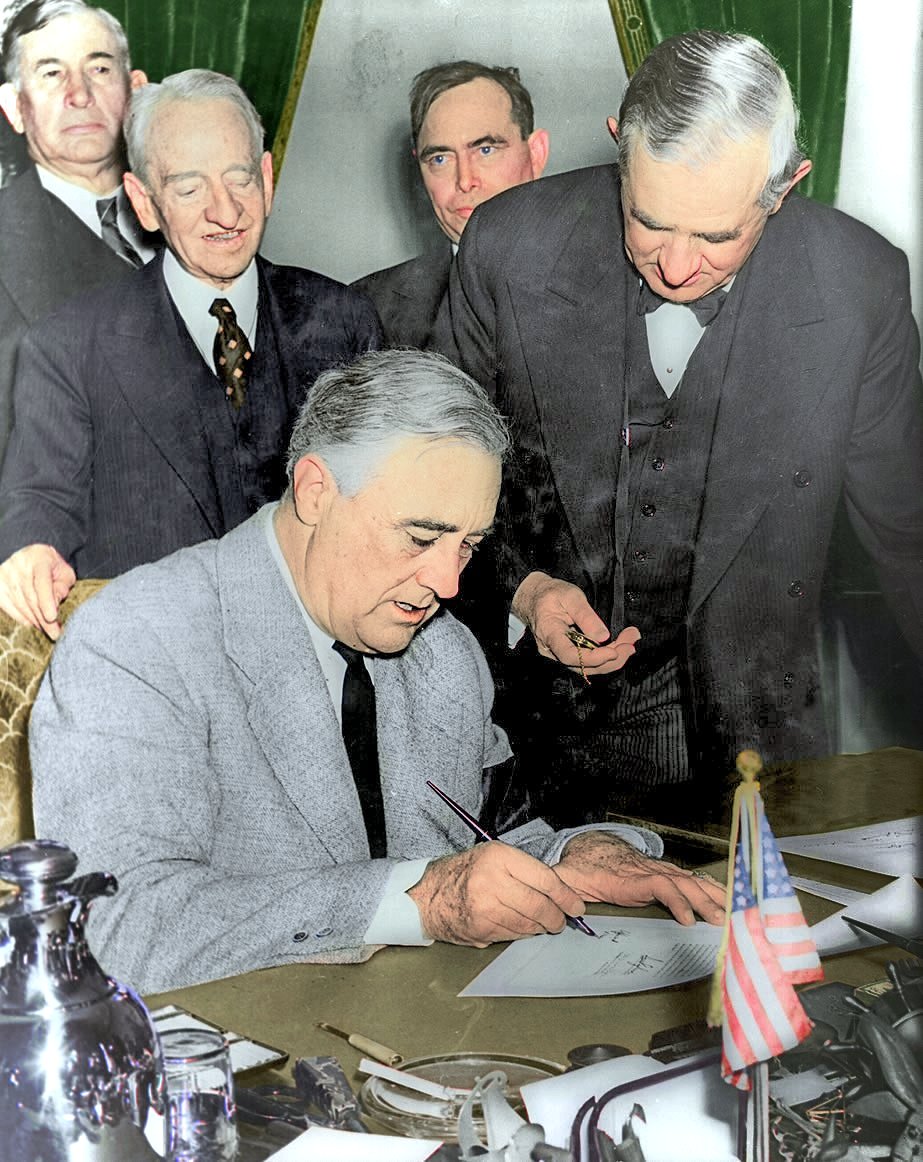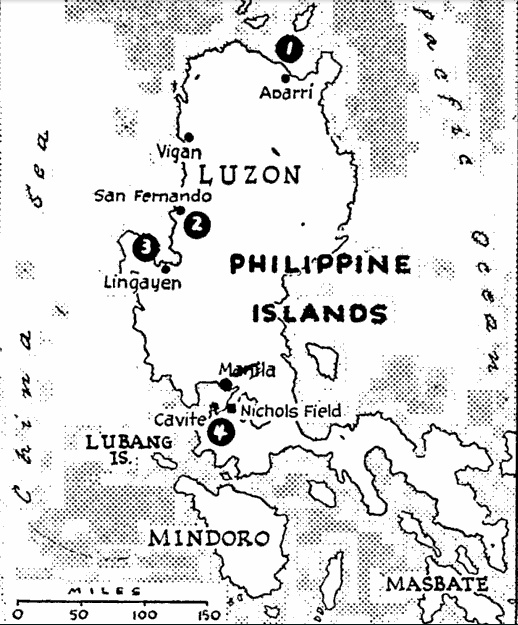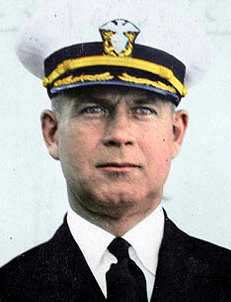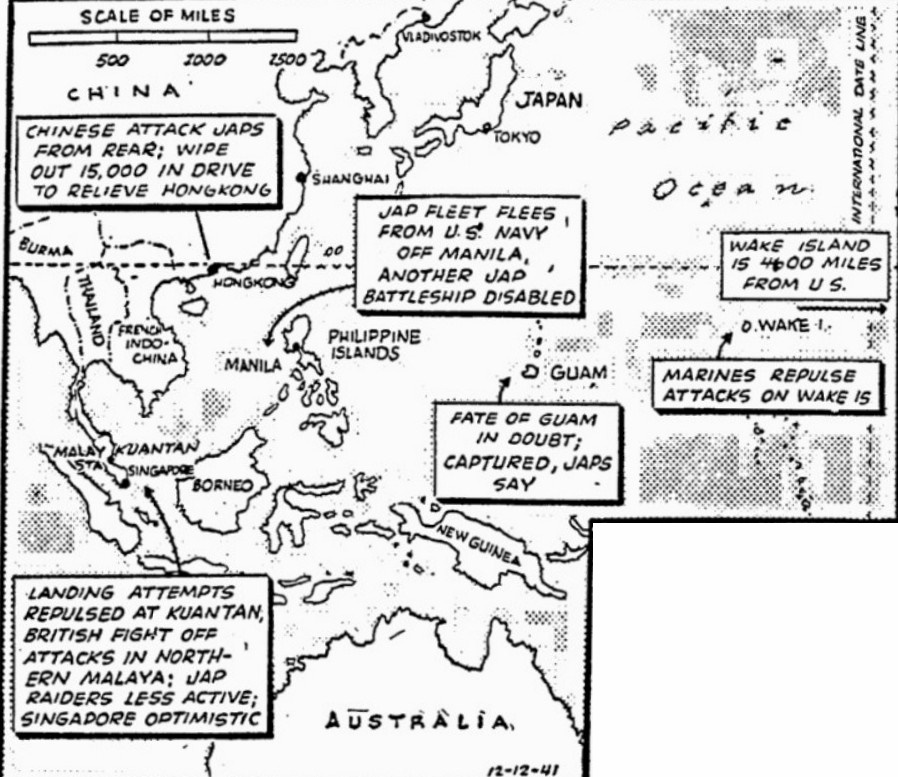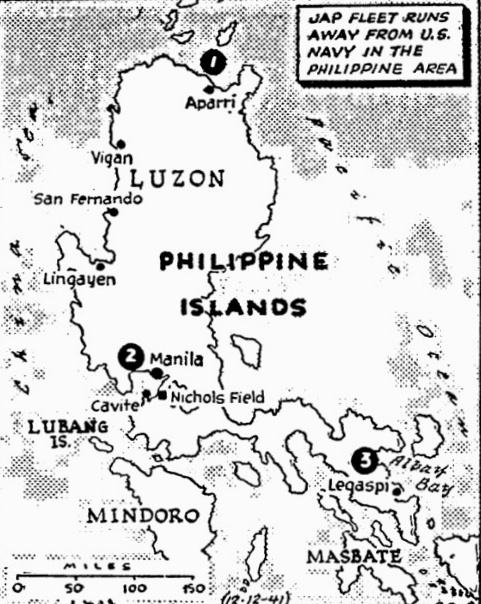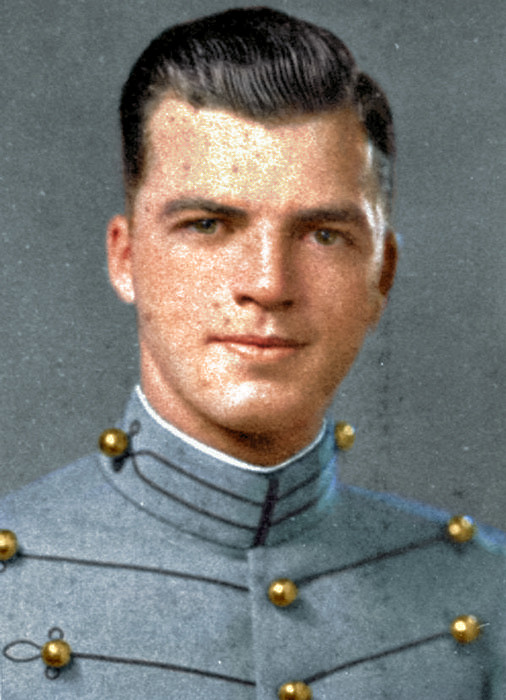Federal agents take 2,303 Axis aliens into custody
Biddle: Majority to be placed in concentration camps supervised by Army
WASHINGTON (UP) – Attorney General Francis Biddle announced today that 2,303 Axis nationals have been taken into custody by the federal government. He said the majority would soon be placed in concentration camps supervised by the Army.
At the same time, Mr. Biddle disclosed that naturalization applications of German and Italian immigrants filed during the past two years would be held up for the duration of the war.
He told a press conference that the Axis nationals seized had been rounded up during a three-hour period in the Hawaiian Islands by military intelligence agents, and within two hours in the continental United States by the FBI.
Mr. Biddle said those in custody included 1,291 Japanese, 865 Germans and 146 Italians.
Only a fraction
The aliens seized represent only a small fraction of the 1,100,000 Axis nationals living in United States territory.
Mr. Biddle said hearings would be held on the cases of some aliens whose seizures as “dangerous” persons may be reconsidered. The hearings will be conducted informally by a board of review similar to those set up to hear the cases of conscientious objectors under the Selective Service Act.
The hearings, he said, will start shortly and the Justice Department hopes to be able to use, in many instances, the personnel of various conscientious objectors’ review boards.
Grave responsibility
The boards, according to Mr. Biddle, will report their findings to him, and the final decisions as to the disposition of the cases will be left to him. He described as “very grave” the responsibility falling upon all concerned in those cases.
Mr. Biddle reiterated that all Japanese, Italian and German aliens not now in custody would be regarded as “peaceful and law-abiding” so long as they obeyed the regulations promulgated under a presidential proclamation issued yesterday.
Mr. Biddle said that several of the aliens now in federal custody undoubtedly would be granted their freedom, while others would be given “permanent paroles as a study of the English system showed this to be the best manner of handling them.”
The parolees will be under the jurisdiction of the Justice Department’s Immigration and Naturalization Service.
Local organizations
The review boards, he said, will be organized locally and will consist “of eminent citizens not in the government.”
The attorney general said that the concentration camps so far planned are located at the forts in Montana, North Dakota and New Mexico, where Axis seamen had previously been sent. He said that everything possible “would be done to treat those seized fairly, as we have many of our own citizens in their countries.”
He also announced the selection of Leo T. Crowley, chairman of the Federal Deposit Insurance Corp., as head of a new division of the Justice Department which will deal with patents and other property of Axis nationals. He said this division would have functions comparable to the alien property custodian during World War I.
Mr. Crowley, whose appointment was approved by President Roosevelt, will also serve as Mr. Biddle’s alternate on the Economic Defense Board.
Hits ‘rough handling’
Mr. Biddle repeated that apprehension and detention of Axis nationals was a “job to be handled by the FBI alone” and he criticized the “rough handling of Japanese” reported in Seattle. He added, “They were very foolish to do it.”
He said there was “absolutely no evidence of fifth column activity or sabotage, but we have already posted extra guards in all vital plants. We are taking no chances.”
According to regulations promulgated under the president’s proclamations, “enemy aliens” – Japanese, Italians and Germans – are forbidden from affiliating with any organization, group or assembly designated by Mr. Biddle.
Travel restricted
Their travel is restricted, and they are subject to seizure if they are found in areas designated as forbidden zones by the Justice or War Departments.
Mr. Biddle asked state and local authorities to prevent molestation or persecution of Japanese, German and Italian nationals. Special steps may be taken to protect the thousands of German Jewish refugees.
It was expected that an early step in enforcement of the regulations would be the purging of foreign-dominated organizations, such as the German-American Bund, of their alien membership.
Firearms barred
No “enemy” alien can possess firearms or other material of war, shortwave receivers and transmitters and other signal devices, cameras, codes and ciphers, papers, documents, books, photographs, sketches or maps of military and naval establishments.
Airplane flights by Japanese, German and Italian nationals are prohibited, except where authority is given by the attorney general or War Department. They are barred from highways, waterways, railways, subways, public utility plants, buildings and other places not generally accessible or used by the general public.
Germany clamps down on U.S. correspondents
BERLIN (UP) – American correspondents on Berlin were barred from the official press conference today and were instructed to proceed to their homes.
The “request” was made by Minister Paul Schmidt of the Foreign Office press department “in view of the fact that, contrary to all international law, German press correspondents in the United States have been arrested.”
U.S. Steel Corp. director resigns to enter Navy
NEW YORK (UP) – Junius S. Morgan, recently called up for active duty as a lieutenant commander in the U.S. Naval Reserve, has resigned as a director of U.S. Steel Corp., and as an alternative member of its finance committee, it was announced today.
Mr. Morgan had previously been granted an indefinite leave of absence from his executive post with the investment banking firm of Morgan Stanley & Co., Inc.
Youngstown Vindicator (December 10, 1941)
Kurusu’s hand tipped in hotel
Becomes furious at seeing red, white, and blue on pajamas
By Drew Pearson and Robert S. Allen
WASHINGTON – The U.S. Armed Forces might have had a valuable tip regarding Special Envoy Saburo Kurusu’s actual “peace” intentions if they had interviewed employees of the fashionable Royal Hawaiian Hotel in Honolulu.
Kurusu made a one-night stopover in Honolulu during his Clipper flight from Tokyo to Washington, and the first thing he did after being shown to his suite was to pick up the telephone and ask for “Room Service.”
“Please have several pairs of pajamas from one of the shops downstairs sent to my room at once,” he ordered.
A few minutes later, a bellhop brought up six pairs of pajamas of assorted hues. Kurusu examined them briefly, chose a bright-colored silk pair. The bellhop took the others away, but had hardly stepped out of the elevator when the desk clerk hailed him.
“Go right back up to Mr. Kurusu’s room,” the clerk directed. “Something’s happened. He sounded very excited.”
The bellboy rushed back to find the eminent Japanese visitor boiling mad. Holding up the pajamas, he pointed to a red-white-and-blue insignia woven on the pocket. Flinging the pajamas at the bellhop, he commanded: “Take them back! Take them back at once and tell that store I’ve decided I don’t want any of their merchandise.”
Who was asleep?
Alibis cannot very well explain away how both Army and Navy intelligence had their guard down so carelessly when Japanese planes swooped down out of the early morning sky at Hawaii Sunday.
Their only explanation so far is that the Pacific is a very wide ocean. However, U.S. naval intelligence at least is supposed to keep a careful eye on when Japanese warships leave port and notify U.S. naval stations in the Pacific to watch out for them.
In 1932, for instance, during the Japanese invasion of Manchuria, the Japanese fleet left mysteriously, and for several weeks the U.S. fleet was on the alert trying to figure out its destination.
In recent years, however, both intelligence services have been under the command of drawing-room experts. Gen. Sherman Miles, in charge of military intelligence, is a charming gentleman who has surrounded himself with wealthy young blue-bloods. Only members of the best families can qualify for military intelligence, and how much they know about the life around a Japanese waterfront is questionable.
Similarly, naval intelligence has been in charge of two delightful gentlemen, Capt. Alan Kirk and now Capt. Ted Wilkinson. Both have their names listed in the Social Register, the blue-blood list of Washington’s selected socialites. Wilkinson has a large mansion across the Potomac in Virginia, and there he entertains in the very best manner, but when it came to docking the USS Mississippi in New York, it took him six and a half hours.
Captains Kirk and Wilkinson are great assets at dinner parties, and apparently want all their young men to be likewise, for no man can get into naval intelligence unless both grandfathers and grandmothers were born in the USA. Not even Wendell Willkie could qualify.
Obviously, it is the man who can speak a few languages, is not afraid to get his hands dirty in close contact with life, and who is not too particular regarding the percentage of blue blood in his veins, who should be able to bring in shipping information.
Mrs. Roosevelt and Japanese
Mrs. Roosevelt is one of the most even-tempered, good-natured persons in the world. But no one in Washington was more irate than she when the news first broke that Japan had sprung a Hitler double-cross on Hawaii during the middle of her husband’s appeal to Emperor Hirohito.
On the fateful Sunday of the bombardment, Mrs. Roosevelt came into the White House while the president was talking to the Japanese ambassador. She said nothing at the time, but her lips tightened into a firm straight line – sure sign that the first lady’s dander is up.
Afterward, she told friends, “Imagine the nerve of that man sitting with my husband in the White House when Japanese bombs were falling on our boys! And when I came in, he got up and actually bowed and was full of smiles!”
No-appeaser Ickes
The one member of the Cabinet who had a consistently 100 percent, though sometimes unpopular, batting record regarding Japan was the toe-stepping, hit-em-harder Secretary of the Interior Harold Ickes.
No one outside the Cabinet ever knew just how many tough fights Ickes had with Secretary of State Hull over appeasing Japan. For a time, it got so that Hull would not speak to him.
Ickes argued way back in 1937, when Japan first invaded China, that the United States should cooperate with Britain in shutting off Japan’s oil and the raw materials of war. And he kept plugging this theme and getting into the hair of the State Department with unremitting zeal ever since.
He brought the matter up again in 1938 when the Japanese sank the gunboat USS Panay, obviously a test by the warlords to see whether the United States would take it lying down.
Then, in 1940, Ickes joined with Morgenthau, Stimson, and Knox in trying to persuade the president to embargo all oil, gasoline and scrap iron. Once again Secretary Hull opposed, and persuaded the president to delay the oil embargo until almost a year later, by which time Japan had built up a year’s reserve of oil – which she has today.
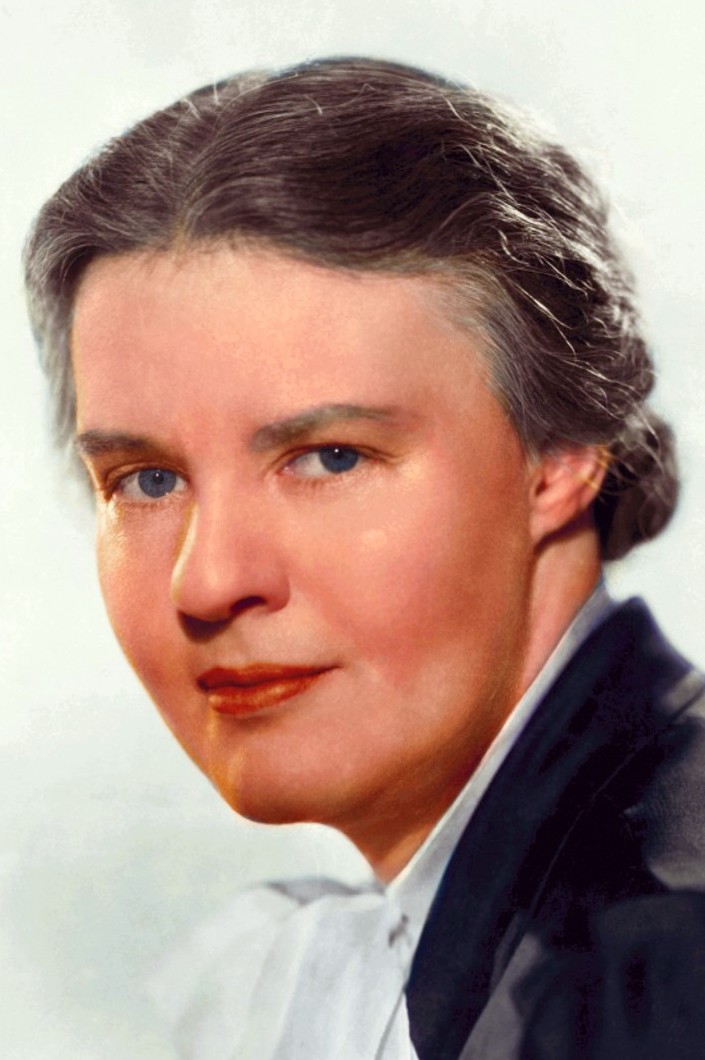
ON THE RECORD —
‘Of the United States’
By Dorothy Thompson
So, it had come. There was nothing unexpected about it. The apprehension that one had had, waking and sleeping, for two years now; more than apprehension, the certainty; something that being certain, one had faced and come to terms within one’s mind – even with an irritation, sometimes a fury, that everybody else didn’t see how certain it was.
“We shall be attacked. We shall be caught, like all the others, by surprise and ill-prepared… just like all the others…” Furious with the talk and the debate and the acting as though the danger were not here, coming closer… coming closer all the time.
Well, now it was here.
It had happened the day before and now the president was going to speak.
There was even something of an anti-climax about it… and something idiotic. No variation. Just like Holland – and we were the great United States. Just like Russia thousands of miles away. Oh – and we were brothers. Who cares for ideologies among men attacked in their homes. The same pattern, now become even a bit tedious. The negotiations; the smiling diplomats.
Suddenly a cold, exaggerated fury at Kurusu’s smile, that bland secretive smile that I had seen on all the photographs.
A friend, sitting next to me at the radio, said, “Well, at least, you are not shocked.”
“No,” I said, “I am not shocked.”
Yes, but I was. Odd that one never gets over being shocked. Over and over again the same pattern and always the surprise… the silly, booby surprise. And I felt it too. “Not to us. they can’t do that to us.” Even when I’d known all the time that they could, and they would. Known it in the bones, where one knows things best. But still the surprise.
The joint session
So it was here. And now the president was walking into Congress, and the calm radio voice was describing his entrance… the applause… The president addressing the joint session…
The president.
My president. Sen. Pepper’s president. Sen. Vandenburg’s president. Hamilton Fish’s president. Our president.
“The President of the United States.”
“Of the United States.”
America!
Why did one cry like any booby just at those words: “Of the United States.”
Now it had come and it was going to be godawful. Not the way some of the radio commentators had said and the editorials. Not the “silly little Japs” and “we’d wipe up the oceans with them.” “Infamy!” Yes, infamy. But so well planned, so well calculated, so efficient, so almost admirable the infamies… one after another… the great success story. Not easy. Hard. Terribly hard… Death… death and wounds; heartbreaks and suffering; all the grueling, wearing, tiring, haggard anxieties, the irritating privations… all the unbearable little things too… what Rebecca West called “the minor horrors of war.”
Life was beautiful
Life had been so beautiful once… when was that…? Oh, so long ago. But now…! Now it would be… unbearable.
What is unbearable?
That’s the final test of who wins. Not the first success… The endurance.
The president spoke out strong the way you do when there is a lump in your throat to overcome. He hated it. Some had said he wanted it – because he saw it. Now the tremble in his voice, so wonderfully controlled. The president.
Not too many words. That was good. There have been so many words already. Now it is deeds. “No matter how long it may take us…” That was good. It won’t be over tomorrow, or tomorrow.
“We will gain the inevitable triumph – so help us God.”
Yes, God help us. “God bless us every one, said Tiny Tim.” Says Great America.
Crazy and silly things
America! Think of everything one loves… Such crazy silly things! Flash back to the time we ran away to the Indian reservation near Gowanda. The Sixth Reader. Lincoln’s Second Inaugural Address: “For still the judgments of the Lord are true, and righteous altogether.”
“I love thy rocks and rills” …the creek by the house where I nearly drowned… at 10… “thy woods and templed hills.” …going to a college conference at Lake George… oh, how long ago… and the white farm in Vermont. Home.
“It was all the little books that had gone to school with me” …who wrote that? Edna Millay… way back… and she wrote those funny articles called “I like Americans.” Funny why she liked them. because they didn’t wear suspenders and didn’t “put a dead man in the top of the bed.”
The first times
Doughnuts and coffee, hot dog stands, terrapin and steamed clams… the first time you saw New York… the first time you saw San Francisco… the church at Old Bennington… Monticello… Amos and Andy…
America!
All the things one hated, too. That passion to change what one hates. Yes, fight for that, too! For our own damned right to change things in our own damned way.
Listen how they were applauding; how they were cheering! Not that deadly monotonous roar: Sieg Heil! Sieg Heil!
Another rhythm. America’s! He stood there: the president. And some of them had hated him; and many of them had fought him; and all of us had elected them; Gene Talmadge and Carter Glass; Sen. Wheeler and Sen. Austin; Sen. La Follette and Sol Bloom, Ham Fish and George Aiken… All the states… the North, the South, the Middle West, the Southwest, the Far West… So near the Far East… The United… States… of… America.
‘So help us God’
Our side. Our team. Our fight. Our Victory.
Their voices commingled in the great cry of the Free!
“So help us God.”
“Protect us by Thy might,
“Great God our King!”
That’s telling ‘em who our King is!
“Americanos! Conquerors! For thee… for thee, oh democracy!
“For thee I am singing these songs.” – Walt Whitman

Lawrence: Hits president in arms delay
Raps New Deal for coddling labor, hurting business
By David Lawrence
WASHINGTON – It has not yet been fully borne in on the Roosevelt administration that a war is on and that the United States Navy has already suffered a severe defeat.
The president is still planning “conferences” with labor and management instead of issuing orders for action. Congress, instead of being alert to its responsibility, is still awaiting word from the executive branch of the government before it determines how to discharge its duties.
A case in point is the way the president is handling labor legislation. He is already lukewarm about restricting strikes although everybody here knows that millions of man-hours have been lost because of strikes. The idea now voiced by the president is to try voluntary cooperation once more. It has been tried and it has failed.
No union discipline
The sad truth which the country has not been told by the administration is that neither the AFL nor the CIO can maintain discipline over their locals and that they have conceded they have only a sort of moral influence over their constituent locals. With the lease-lend program in effect and upwards of 100 lives lost on the USS Reuben James, the coal strike and the insurrection in the commercial coal mines took place. Yet the administration is talking about giving “voluntary cooperation” a further trial.
The United States faces a serious debacle in its defense program. The country is in for some unpleasant news when it learns how the whole program has been delayed through strikes, red tape, inefficiency, and the politics of class warfare. “America is unprepared for a two-ocean war,” is the word of rejoicing which the Berlin radio is broadcasting. And the reason, of course, is that the president has failed to organize the production of the nation on a basis that will make up for the deficiencies in our Army, Navy and Air Force.
When Bernard M. Baruch came back from Europe in the autumn of 1938 after the Munich conference, he tried to warn the president of the needs of the Army and Navy and Air Force. He said Chamberlain capitulated because England was unprepared. Whatever the mistakes and delays prior to the outbreak of war in September 1939, there certainly is scant excuse for the dawdling way the defense program has been handled since that date.
Country wakes up
It has taken the serious defeat in the Pacific to wake up the country to the truth about the way things have been going. In a democracy it is often through political evasion that the truth is concealed. But the facts about production are easy to obtain. The whole industrial mechanism has not been functioning properly. Management has been suspicious of the efforts of the New Dealers to put over their government ownership schemes and labor has been given no word of denunciation from the government until recently for ignoring the requests of the administration to stop strikes.
In the midst of this class friction and with an international war in the offing, the president resorted to a scheme to put over the compulsory unionization of the coal mines which does not look well in the record. John J. Lewis ignored the president’s requests twice and yet today he has been rewarded by a presidential appointee, who has granted him all he asks for. It paid Mr. Lewis handsomely to strike.
The leaders of labor say they are behind the government and the defense program. They have said this dozens of times in the last two years but the strikes and interruptions happen just the same. The president, it was believed, would not temporize with the situation any longer. But he is doing so again.
Longer hours
Word that longer hours must be worked and that a seven-day week will be requested has come at last from the president. William S. Knudsen, coordinator of the OPM, begged for this in a public speech just a year ago, but his advice was ignored.
As one looks back over the record of failures in administering the defense program, one wonders what will happen when the public gets the true facts about how the administration preferred to put its own political reforms above preparedness and allowed interruptions of a serious nature to delay the production of weapons for defense.
America is unprepared today because the administration has preferred to talk of “social gains” and squelch legislation that would have helped production. It has coddled pressure groups even since May 1940. As for the production mechanism of the country, it has been impaired by government harassment of any kind.
Business hampered
The Department of Justice is still trying to put in jail dozens of key executives because of anti-trust law technicalities. The workweek has been shortened in the name of “liberalism” but waste has followed and costs have been forced upwards by the time-and-a-half basis so that longer work shifts cannot be economically operated. Businessmen have been blamed by New Dealers who have sniped away without presidential reprimand. The most important material in making an airplane – aluminum – happens to be made by a large company against which a New Deal clique has done everything for the last year to demoralize operations and break down its efficiency.
Someday what has happened in the last two years will be seen in true perspective and the American people will find out that in a war in which production and mechanization count so much, the leaders of industry have been browbeaten, threatened, and forced to one side while a group of reformers, with no experience in organization or industry, have sat at the key posts in the cabinet and in the executive agencies.
And there is no sign as yet of change, no sign of true coalition government, no sign of action and collaboration, but instead the same talk of coddling pressure groups and putting politics and “social gains” above the nation’s safety.

Eliot: Asserts U.S. should hide Hawaii facts
Says Japs would also like to know extent of damage
By Maj. George Fielding Eliot
This is perhaps the gravest hour in our national history. It is an hour for calm and resolute thinking. Above all, it is an hour for the suspension of judgment as to the course of events and the responsibility for seeming misfortune until information upon which judgment can properly be based is available.
The cry for news, news, news is understandable. The anxiety which lies behind that cry in inevitable. Yet every citizen ought to realize it is his duty, perhaps his most important duty at the moment, to keep calm, to curb his natural desire to know what is happening, to await the moment when he may be safely told.
Pressures of whatever kind brought to bear at this time to force either the revealing of information or the apportionment of praise or blame can do nothing but give advantage to the enemy. Remember that the enemy, too, wants information. He wants desperately to know what we are thinking and doing and planning. The least hint may be of service to him, of grave disservice to the United States.
Atlantic drained fleet
Specifically, I have in mind the present naval situation in the Pacific as affected by the Japanese attack on the American fleet and base at Pearl Harbor and the other operations which have taken place or are taking place. At the beginning, the American Pacific Fleet faced certain difficulties, due to withdrawal of some of its ships to meet the new responsibilities we had undertaken in the Atlantic. It was necessary to meet these responsibilities, once they had been assumed.
The amount of force required for that purpose was a matter for judgment of the president and his naval advisers. It may be said that, if the force transferred to the Atlantic included any of our modern battleships, the responsibility assumed by whoever made the final decision to divide the battle force was a very grave one, and one whose results must eventually be tried at the bar of public judgment.
Margin was not great
It is the personal opinion of the writer, and always has been, that, whatever disposition be made of the lighter craft to meet changing conditions and needs, the main striking power of the fleet, the battle force, ought never, under any conditions, to be divided as long as there exists a potential enemy in either ocean possessing a strong battle line.
Margin of superiority possessed by our original Pacific Fleet over the total force of the Japanese Navy was not great, though probably sufficient for victory; almost certainly so, taking into account our great superiority in naval aviation. How much that margin had been whittled down by transfers to the Atlantic is uncertain, but certainly it had been reduced.
Japs want to know, too
Now the question is, how much further has our fighting strength in the Pacific been cut by the Japanese attacks on Pearl Harbor; how many ships have been lost, and how many put out of action for a greater or less period of time by severe damage? We do not know, and we ought not – at this time – to ask. The Japanese would like to know that too; they can hardly be sure of what they have done, or left undone. The whole course of their future operations, and ours, depends on accurate information, and the side with the best information has a tremendous advantage.
Playing for time
The Japanese are playing desperately for time. They have probably gained some time by their attack on Pearl Harbor. Their great anxiety is to establish themselves securely in the Far East before superior naval forces can appear there. To do this they must take Singapore and Manila before a superior American fleet (or a superior Anglo-American-Dutch fleet) can be assembled in Far Eastern waters.
They cannot detach the whole of their battle force to meet us, because they must keep a certain number of battleships in the South China Sea to cover landing operations in Malaya; otherwise these will be at the mercy of the two or more British battleships now at Singapore.
Had to take first blow
They have their worries; they are making a desperate bid for quick victory before their resources are exhausted. Remember all this, and remember that if that bid for victory is to be defeated, we must make the most effective possible use of every man and ship and plane we possess. The least hampering of our national effort now, the least leakage of information, may be fatal.
If there is blame to be apportioned for what may have happened at Pearl Harbor, then the time for that is later, when all the facts can be told.
Our defensive policy necessarily causes us to be the recipient and not the deliverer of the first blows. We ought to have attacked Japan without warning, from the strictly military point of view; from the political point of view this was impossible, and the political results might well have proven more damaging than the physical blows we have sustained in consequence.
U.S. State Department (December 10, 1941)
The Ambassador in the United Kingdom to the Secretary of State
London, December 10, 1941 — 1 p.m.
[Received December 10 — 12:11 p.m.]
5974
Personal for the Secretary and the President.
The Prime Minister, as you will have seen in the press, announced to the Parliament at 11 o’clock this morning the loss of the PRINCE OF WALES and the REPULSE. I was with him last night and saw him immediately following the announcement and have been constantly with him over the last few days. It seemed best to me that certain information should go from him direct to you rather than through the Embassy. I hope you and the Secretary approve. He feels that information from the Pacific calls for reconsideration of planning as you already know. Discouragements seem only to give him new courage and add to his determination.
Your speech to the Congress was carried on the BBC. It gave people great confidence here. I listened to your talk to the Nation last night. There was serious interference but it was repeated this morning, again at noon on the NBC. People here assume that we are in the total war together. News from the Middle East and Russia is good.
WINANT
The Secretary of State to the Ambassador in China
Washington, December 10, 1941 — 6 p.m.
293
Your 481, December 8, 6 p.m.
Please inform Generalissimo Chiang Kai-shek as from the President that the President deeply appreciates the attitude of the Generalissimo and of the Chinese Government as expressed by General Chiang to you on December 8. State also that the suggestions made by General Chiang at that time are receiving prompt attention and careful study.
HULL
The Secretary of State to the Ambassador in Japan
Washington, December 10, 1941
824
Department received today your telegrams 1906 and 1910 of December 8, together with your undated telegram which contained Foreign Office note in regard to existence of state of war between the United States and Japan.
We hope that all goes well with you and your staff and other Americans in Japan. Department has notified families of Embassy staff that you are all safe and well.
HULL
